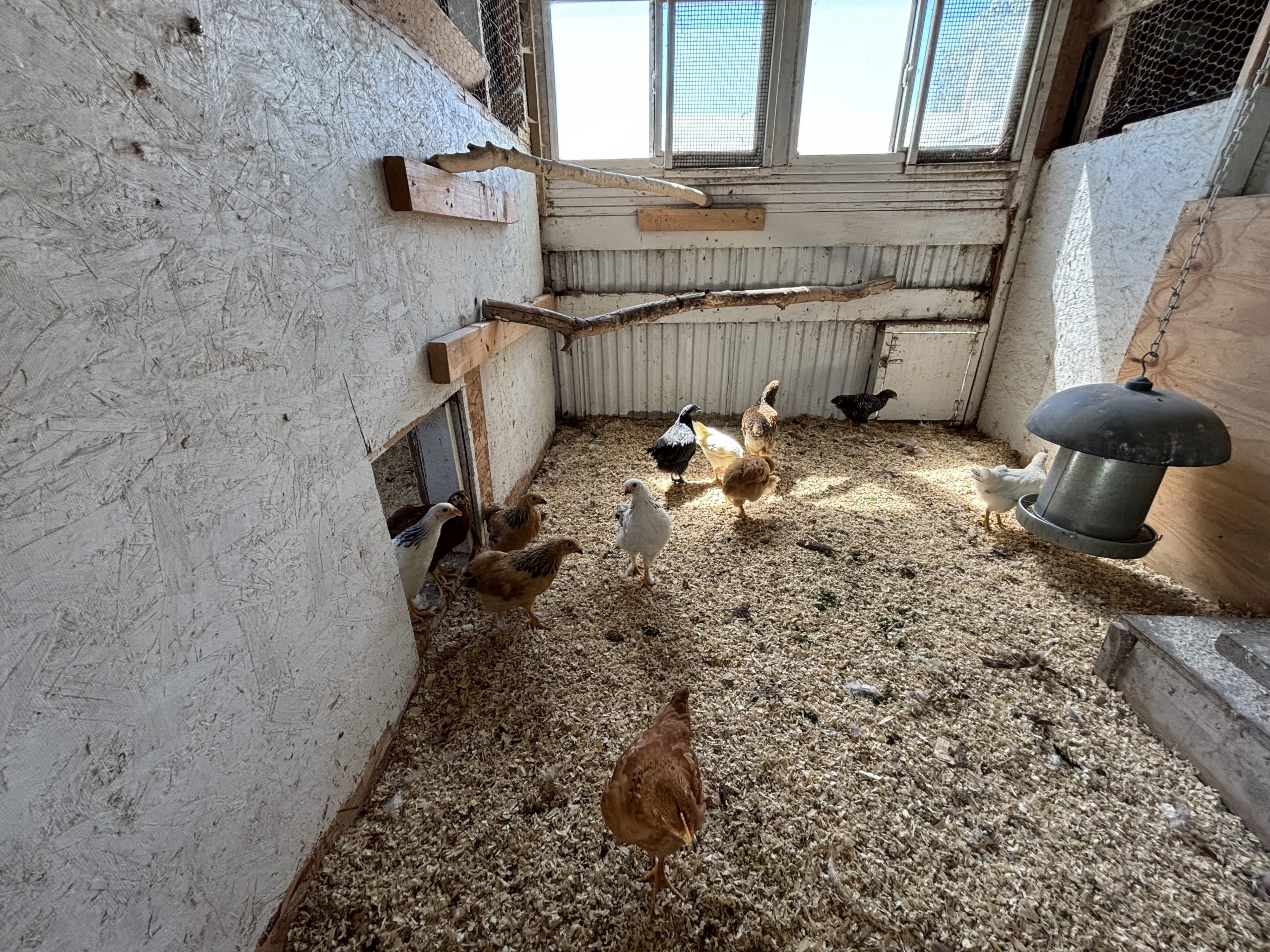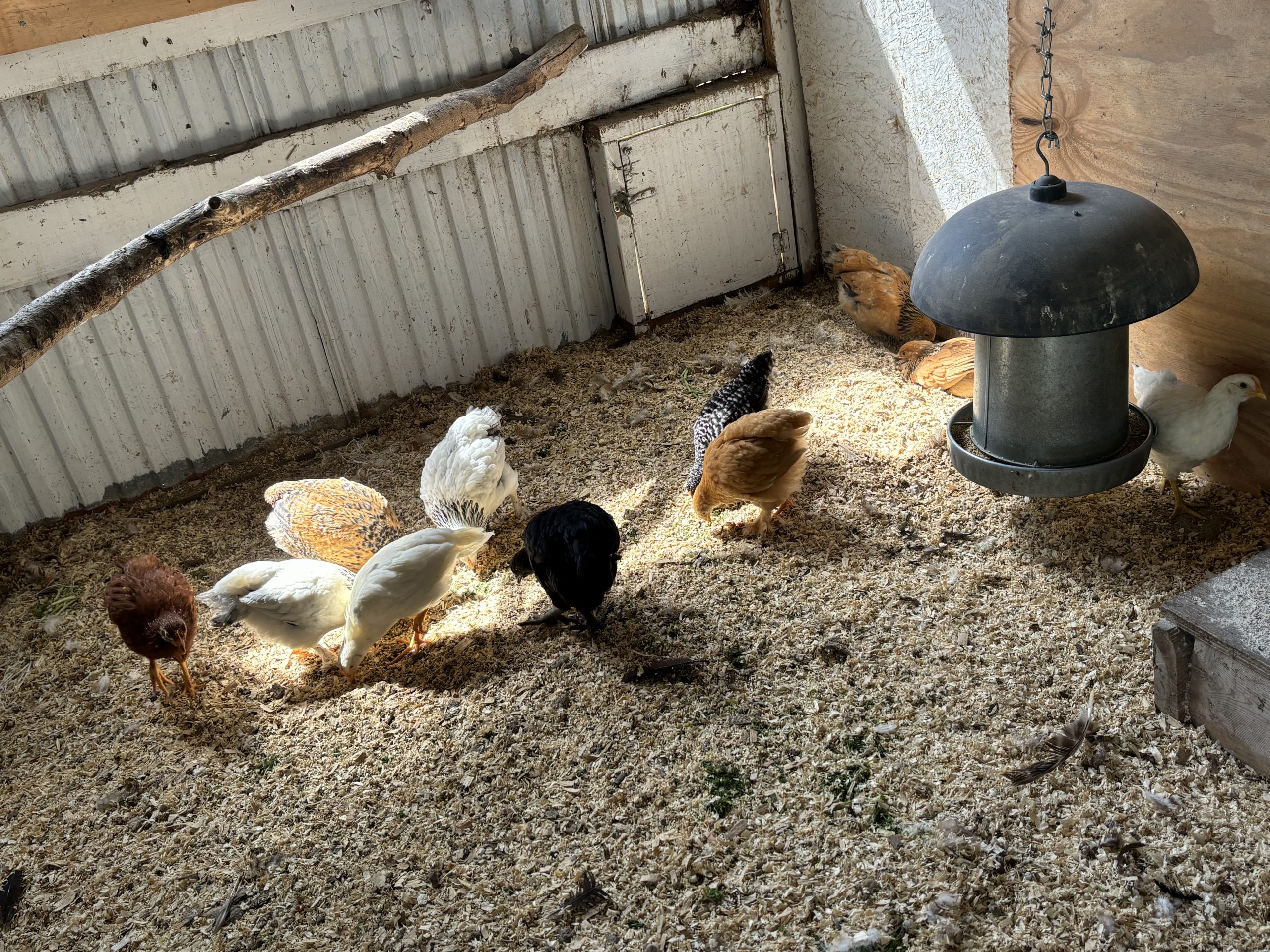For all their many benefits, a backyard chicken flock presents one problem for families who love to travel. Chickens need care every day. That’s impossible from a distant hotel or campsite. Fortunately, there is a time in chicken maturity when traveling is easier. It’s when the birds are maturing from adolescence into early adulthood.
Baby chicks need constant vigilance. They must be checked often every day. The heat may need adjusting. Small waterers and feeders quickly empty and need refilling, and sometimes a waterer tips over, soaking litter that needs to be replaced.
Once in a while a chick dies and should be swiftly removed. It’s hard to travel when chicks are in the brooder and need constant care.

Five or six months later those babies will be leaving eggs in nests that need to be collected a couple of times a day. If the hens have an outdoor run the pop hole door must be opened each morning and closed in the evening to keep the raccoons and other predators out. These tasks require a few visits each day.
Friendly neighbors and helpful relatives are often happy to temporarily tend the flock so a family can travel. Recruiting fill-in helpers may be challenging to find if several daily visits are needed. Fortunately, there’s a time during chicken maturity when only one or two visits a day are needed. That may make finding a caregiver easier.
Families often start chicks in early spring when the weather is cool and the peeping babies must bask in a nearly 100-degree brooder. Fortunately, by the time they’re five or six weeks old their bodies are covered with one of nature’s finest insulation – feathers. By then, spring is transitioning into summer and crisp frosty nights are just a memory.
Those six-week-old chicks are feathered adolescents. They need less care than when they were babies. As long as the temperature stays somewhat above chilly, they are fine in the coop without a brooder’s heat. They’re still too small to let forage in the outdoor run, so there’s no need to open and close the pop hole daily. Since they are too young to lay, daily egg collecting isn’t yet needed.
Adolescent through early adult chickens is probably the easiest age to care for, and this gives a family an opportunity to travel. That’s when the weather is pleasant, fish are biting, and it’s a great time for a family to get away from home for a few days.
It’s important to recruit someone to check in on chicken youngsters daily but because care is simple and the need for frequent visits lessened it may be easier to find a substitute caretaker.

Here’s how we prepare our coop at Winding Pathways so maturing chicks only need one or two visits a day from a helpful neighbor who just needs to check them daily:
Coop: Before departing on a trip, we make sure the coop is tight enough to keep predators out and there’s the right amount of ventilation for expected weather conditions. Our coop windows are covered with heavy duty wire mesh that repels raccoons, and screening to keep out insects. Before leaving we spread a new layer of pine shavings on the floor. Crowding creates problems so we give our birds plenty of indoor coop space. Four square feet per bird is a minimum but we give them at least twice that much room to run, flap their wings, and explore.
Food and Water: The more feeders and waterers in the coop the better. When home we always keep two waterers and feeders in the coop. Should one empty or tip over there’s always a second available. When we leave on a trip, we add more feeders and waterers and fill them to the brim. It’s overkill but our chickens can eat and drink for a full week without the need for refilling. That helps the caregivers. And, we keep a metal garbage can of extra feed and jugs of water nearby so the person tending our flock can easily make refills as needed.
Extras: We can be away for a week before our friendly neighbor needs to refill feeders and waterers but we’re never out of touch. She can call us on our cell phone if something comes up and needs our input. One daily coop visit is all that’s needed and it’s just a check in to make sure everything is okay in the coop. We bring our helper a gift or two from our travels and give her plenty of eggs once the hens begin production.
We love our chickens and like to travel. Helpful friends and neighbors allow us to keep our flock and get away once in a while. We know it’s easiest on substitute flock caregivers if we travel during the few months after chicks leave the brooder but before they begin laying.